Children

Ten children, part of the same extended family, were killed by a U.S. air strike in Afghanistan, along with three adult civilians, the United Nations said on Monday. The air strike early on Saturday was part of a battle between the Taliban and combined Afghan and U.S. forces that lasted about 30 hours in Kunduz, a northern province where the Taliban insurgency is strong.

"Imagine your family ripped apart. That’s going to have reverberations across family members for years to come."
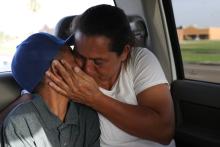
Marroquin Perdomo gave her son a set of colorful handmade cards she had made for him in detention. On one of them, she had drawn flowers surrounding a Bible verse – Salmos (Psalms) 121:8.
It reads in English: “The Lord will watch over your coming and going both now and forevermore.”
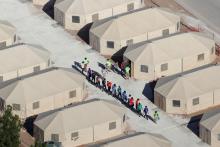
U.S. Judge Dana Sabraw in San Diego last month ordered the government to stop separating children from immigrant parents entering the United States illegally and set deadlines for the government to reunite families.

She later remarked, “It just struck me as ridiculous….How could they be talking about marriage and birth control of all things without a lot more input from the persons involved?” Crowley testified before the commission, telling them that, besides being unreliable, rhythm was psychologically harmful, did not foster married love or unity and, moreover, was unnatural.
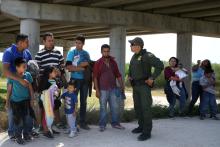
“In my 20 years here being engaged in frontline immigration work, this was probably my most difficult and hopeless day. There were probably 120 migrants looking for support. Most were coming from Guatemala and Honduras and wanting to seek asylum. There were alot [sic] of women with children who were fleeing horrible domestic violence situations where their ex-husbands are trying to kill them. They had no idea that Attorney General Sessions has changed the laws and that they can't even apply, or if they do, they will be separated from their kids. It was so painful to see them process this news and they are so far from home.”
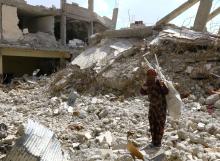
Our findings are alarming: 1-in-3 men and women screen positive for PTSD (similar to the lifetime prevalence in Vietnam War veterans), nearly half show a high level of depression, and half exhibit high anxiety. Half of children show high anxiety. Nearly 80 percent separation anxiety in children restricts their ability to go to school and explore their new world. The number one concern expressed by teachers is their difficulty attending school because of high separation anxiety. This is especially critical because cumulative research shows serious negative effects of untreated childhood trauma on mental and physical health in adulthood.

Organized by Avaaz, a U.S.-based civic organization that emphasizes global activism, intends for the "Monument for our Kids" to put pressure on Congress to take action on gun control. Images of the striking visual have been widely shared on social media, with the hashtag #NotOneMore.

My son wanted a simple answer, and I could not give him one. It is similar to our overall climate today — we want simple answers to our questions, but that’s not always possible, is it? Humanity is not always simple. But it is necessary that we see the reality we face for and with our children. The things we teach them today, the way we talk about the world, the church, the political climate — it affects them and shapes their futures.
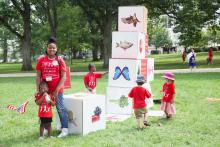
Help them understand they have a voice.
Elizabeth Brandt, a mom and a participant of the play-in, takes her young daughters to her senators’ office. She believes she believes this will lay a foundation for her daughter to speak up throughout her life.
“She may not have the most articulate things to say — last year when she was three she asked them not to throw trash in the ocean which our senators don’t do — but she’s learning that she has a voice in this process and that’s about the most important thing,” said Brandt.
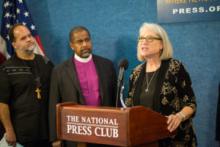
Further, this proposed budget seems to be based on an assumption that poor people and children should fund our national defense. The National Council of Churches and the Circle of Protection do not agree. The biblical prophets teach us that our security depends on upholding justice for people in poverty. Common wisdom in our own time tells us, “a hungry man is an angry man.”

On Dec. 14 buses that were meant to evacuate citizens and rebel fighters out of Aleppo, Syria, after a raid and massacre by the Syrian government, left — empty, reports the New York Times. Gunfire has been heard by people who are still in the city, and it is believed that a ceasefire established on Dec. 13 — between the regime of Syrian president Bashar al-Assad and rebel fighters — has dissolved.
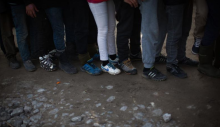
As of Oct. 25, French authorities have begun demolishing the migrant camp known as “the Jungle” in the city of Calais, reports CNN. The camp — stretching nearly 4 square kilometers — was home to more than 3,100 migrants. Many of these migrants have been bussed from the camp to other regions in France.
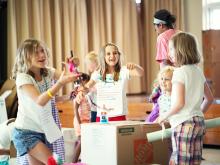
Instead of the traditional vacation Bible school, this downtown church partnered with seven other congregations — black, white, Baptist, Jewish, Episcopal, Pentecostal, and nondenominational — to put on a community-organizing camp for kids aged 4 to 12.

I’ve never been more aware of my brokenness than in motherhood. Yes, I’m sinful and bent toward destruction (not unlike my toddler, it’s worth noting). But my brokenness also plays out in a general reality that I’m not quite in working order.
Like a tricycle with a wobbly wheel, I just can’t get the job done gracefully. I leave laundry in the washing machine for too long, I meal-plan for only three days out of the week, I forget to brush hair and wipe faces for picture day. It’s not graceful, but it is grace-full.

When I am alone, and everything is quiet, I feel the weight of the holy pressing in like a warm comforter tucked up tight around me. When I am alone in this quiet, God feels so close, so tangible — so present.
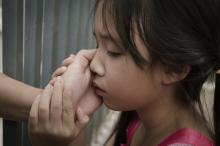
More than five million children in the U.S. have or have had a parent imprisoned. And the consequences can be devastating.
According to “A Shared Sentence,” a new report from the Annie E. Casey Foundation, “Having a parent incarcerated is a stressful, traumatic experience of the same magnitude as abuse, domestic violence, and divorce.”

I love Saint Mark. I truly do. But if the apostles were in a line-up and we threw Mark in there with them, I wouldn’t be able to tell him from second Judas. Frankly I wouldn’t be able to identify half of them. At this point, some folks have likely paused to Google, “there were two Judases!?"
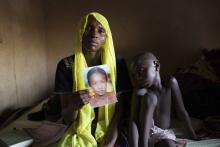
Two years after the abduction of nearly 300 Chibok schoolgirls by Boko Haram militants in northeast Nigeria, some parents are still hoping their daughters will one day be rescued. But some church leaders there are concerned that the authorities have not done enough to rescue the girls, who were ages 16 to 18 at the time of the kidnapping on April 14, 2014. About 50 of the girls escaped, but 219 remain missing.

ONE OF OUR articles this month encourages us to more intentionally incorporate the lives and wonders of children into our worship, which is a great idea, because if all the kids are in the sanctuary you don’t have to volunteer for child care.
But seriously, tapping the natural energy of the young would create a more holistic experience and open the door to a greater connection with the divine, assuming the divine has a short attention span and a constant runny nose and tends to giggle during silent reflection. Not to mention drawing pictures on the collection envelopes in the backs of pews. (If they don’t want children’s graffiti on those envelopes, they shouldn’t put them right next to those little yellow pencils, which the child invariably drops and, with cat-like speed, goes after it before the parent can grab him. A short time later, pencil in hand, the young one looks around under the pew but sees no familiar legs or shoes. He is lost, not unlike the sheep the preacher is at that moment talking about, the difference being that the parent now pulling the child backward by his feet is less the Good Shepherd of the New Testament and more the Vengeful God of the Old Testament who doesn’t give a crap about sheep. But I digress.)
A child-centric church is something I experienced firsthand growing up in the warm embrace of the Southern Baptist church. For me, Sunday was the best day of the week. There was no school, so no gym class with humiliating taunts from peers questioning my athleticism, no condescending teachers refusing to give credit for my book report on TV Guide (so much to watch, so little time, what with homework and all that).
Church was a place of safety and support, a time for the social outcasts of weekdays to finally feel appreciated and valued, particularly by the adults, who gladly drew us into the heart of the church, just as soon as they finished their cigarettes. (In those days, all have smoked and fallen short of the glory of God, although I think God cut you some slack if it was menthol.)